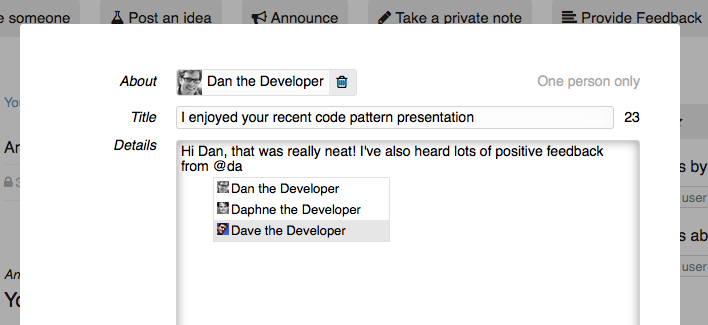This is a guest article by Joanna Sides, founder of consultancy firm Changing Perspectives which helps clients integrate and activate diverse teams. With a background in market research and data analysis, Joanna has consulted more than 30 Fortune 500 companies on knowledge sharing and information transparency.
Miscommunication happens all the time. When it happens at work, it not only makes us crazy, but it wastes time and money. The root cause of most misunderstandings is context incongruency – we communicate from our own perspective and context, which can trip up those with a different background or pattern of thinking. Our knee-jerk reaction when we don’t understand: “They’re an idiot!”
To be clear, no one is an idiot. Perspective makes a huge difference in how we communicate and understand each other. So when you feel like calling someone names and exploding with expletives, take a deep breath and try making your point using a different angle.
These sentence starters can help you and your colleagues calmly come to terms, understand where perspectives differ, and effectively combine your approaches.
“Here is my perspective…”
Starting your sentence with a qualifier that this is based on your own perspective can reframe the tone of a conversation. The simple, but explicit, reminder that you are speaking from a single point of view – and don’t assume you know everything – can soften a hardened mindset and breathe fresh air into a stuffy meeting room.
“Based on my experiences, I’d prefer…”
You were likely hired in part because of your background. Experience matters. It shapes the way we think and hones our instincts. When you draw on those instincts though, it can be helpful to remind yourself and others where your conviction about a particular path forward is coming from. Instincts are personally developed and often not part of a team’s shared pool of knowledge. Explaining why you feel so passionately can help others get on board with your plan.
“The method I was trained to use is…”
Training is just as valuable as experience and also has a significant impact on our perspective. It’s always helpful to reflect on why you do what you do. Were you taught this way? Is it a habit molded by experience? Are you on autopilot? Be honest with yourself and clear with your colleagues about the methods you use in your day-to-day work. Methods are simply tools, and different tools are appropriate for different problems. Starting a sentence this way might help put various methods on the table and open up a discussion about using the right tool for the job.
“Based on this dataset…”
Data can tell any story we like. While most of us do not actively manipulate our colleagues with a specific subset of data, we may inadvertently be telling an incomplete story when we present data. As a market researcher, I try to start all my data-driven conversations with two pieces of information: the parameters of the dataset (population sample, screening questions, etc.) and details about the collection methodology (in-person, online survey, meta-analysis, etc.). These two things put the data into perspective and prime people to think about the data in context. If you find yourself tempted to respond to a colleague’s “facts” with “alternative facts,” try asking about these parameters to find where the discrepancy lies. Remember, the truth usually sits in a combination of various datasets.
“This makes sense to me… this does not”
The first part of this sentence creates a shared pool of meaning and inspires trust; the second portion candidly identifies the confusion factor you want to discuss. A similar beginning which helps create shared meaning and understanding is: “can we agree that…” It always helps to start from a place of mutual understanding before moving into subjects that may cause friction.
“There are a few ways of looking at this”
The bottom line is that your perspective, approach, and opinions are shaped by your background and experiences; and so are everyone else’s. Exercise empathy and humility. Recognize that although you have a critical part of the big picture, it must be combined with your colleagues’ perspectives. Stating this out loud helps others to realize that, too. This phrase can also create psychological safety and encourage others to share their views.
The next time you find yourself swirling in tough conversations, never seeming to find common ground, try stepping back and using one of these sentence starters. Or if you’re leading a meeting where emotions are running high and team members are not aligned, encourage them to use these phrases.
Pay attention to how being mindful and transparent about your perspective impacts team dynamics and individuals’ reactions. You might be surprised to find that slightly changing your language can make a big difference.
[cs_gb id=12692]



